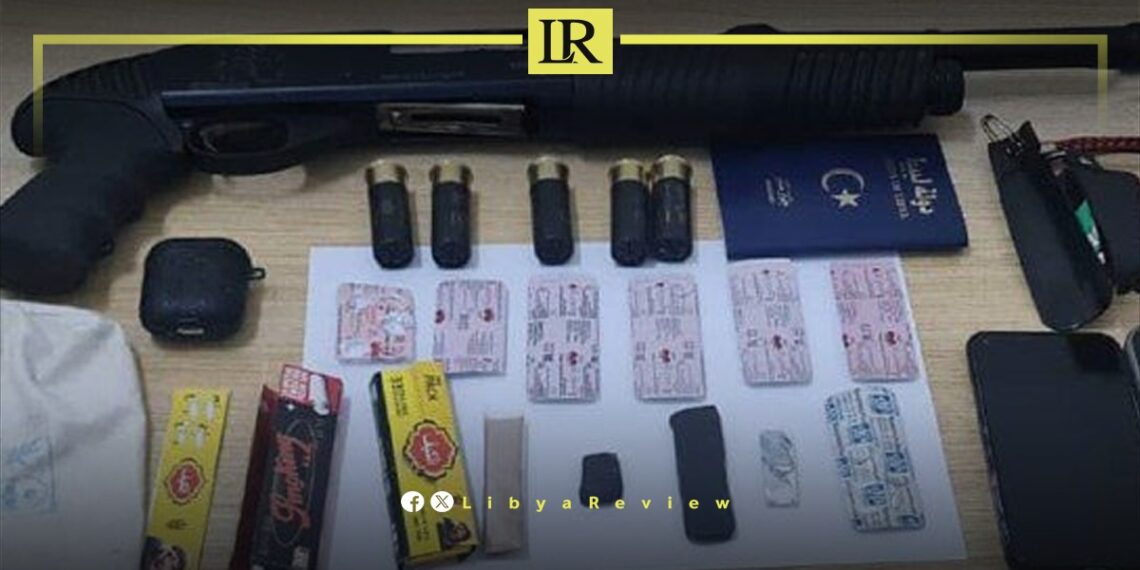In a successful operation by the Benghazi Security Directorate’s Criminal Investigation Department, a drug trafficker was apprehended near Target Club Island on the highway. The suspect, found with hallucinogenic pills, hashish, and a small bag suspected to contain heroin, was immediately detained during a routine patrol.
The security forces conducted a precautionary search of the vehicle the suspect was driving. They discovered a shotgun, various types of hallucinogenic pills, two large pieces of hashish, and a small bag containing a substance believed to be heroin.
The suspect confessed to trafficking and distributing drugs using his vehicle. He has been transferred to the narcotics and psychotropic substances control agency for further legal proceedings. This arrest highlights the ongoing efforts to combat drug trafficking within the region.
In January, the Investigations Office of Libya’s Narcotics and Psychotropic Substances Control Agency announced on Friday the arrest of an individual involved in the import and trafficking of drugs, specifically hashish, in the city of Tobruk.
According to a statement, the suspect was apprehended after a carefully orchestrated sting operation. Authorities found the individual in possession of 350 kilograms of hashish.
The operation marks a significant victory for the Tobruk authorities, in their ongoing battle against drug trafficking. The Narcotics and Psychotropic Substances Control Agency remains vigilant, using sophisticated surveillance and intelligence operations to dismantle networks and stem the flow of illegal narcotics into the region.
As the investigation continues, the agency affirms its commitment to safeguarding the community from the perils of drug abuse and trafficking. The successful operation sends a strong message to those involved in the illegal drug trade, highlighting the risks and consequences of their illicit activities.
Libya has been in chaos since a NATO-backed uprising toppled longtime leader Muammar Gaddafi in 2011. The county has for years been split between rival administrations.
Libya’s economy, heavily reliant on oil, has suffered due to the ongoing conflict. The instability has led to fluctuations in oil production and prices, impacting the global oil market and Libya’s economy.
The conflict has led to a significant humanitarian crisis in Libya, with thousands of people killed, and many more displaced. Migrants and refugees using Libya as a transit point to Europe have also faced dire conditions.
The planned elections for December 2021 were delayed due to disagreements over election laws and the eligibility of certain candidates. This delay has raised concerns about the feasibility of a peaceful political transition.
Despite the ceasefire, security remains a significant concern with sporadic fighting and the presence of mercenaries and foreign fighters. The unification of the military and the removal of foreign forces are crucial challenges.


